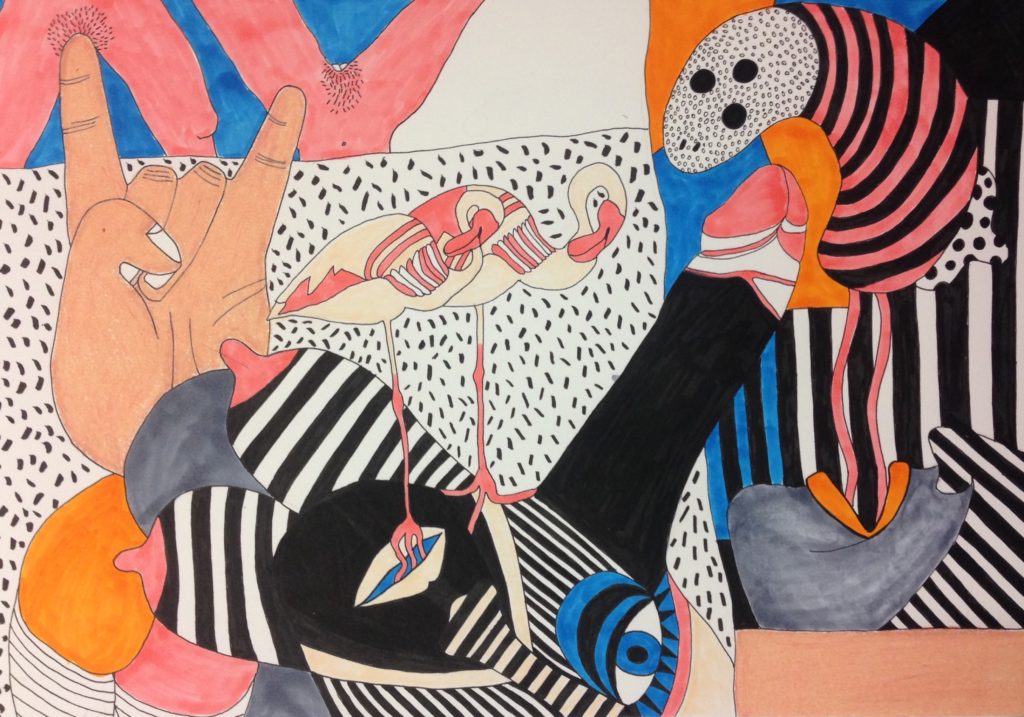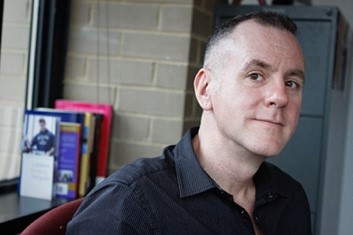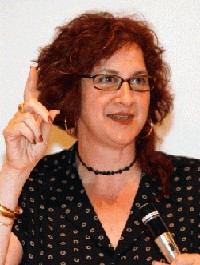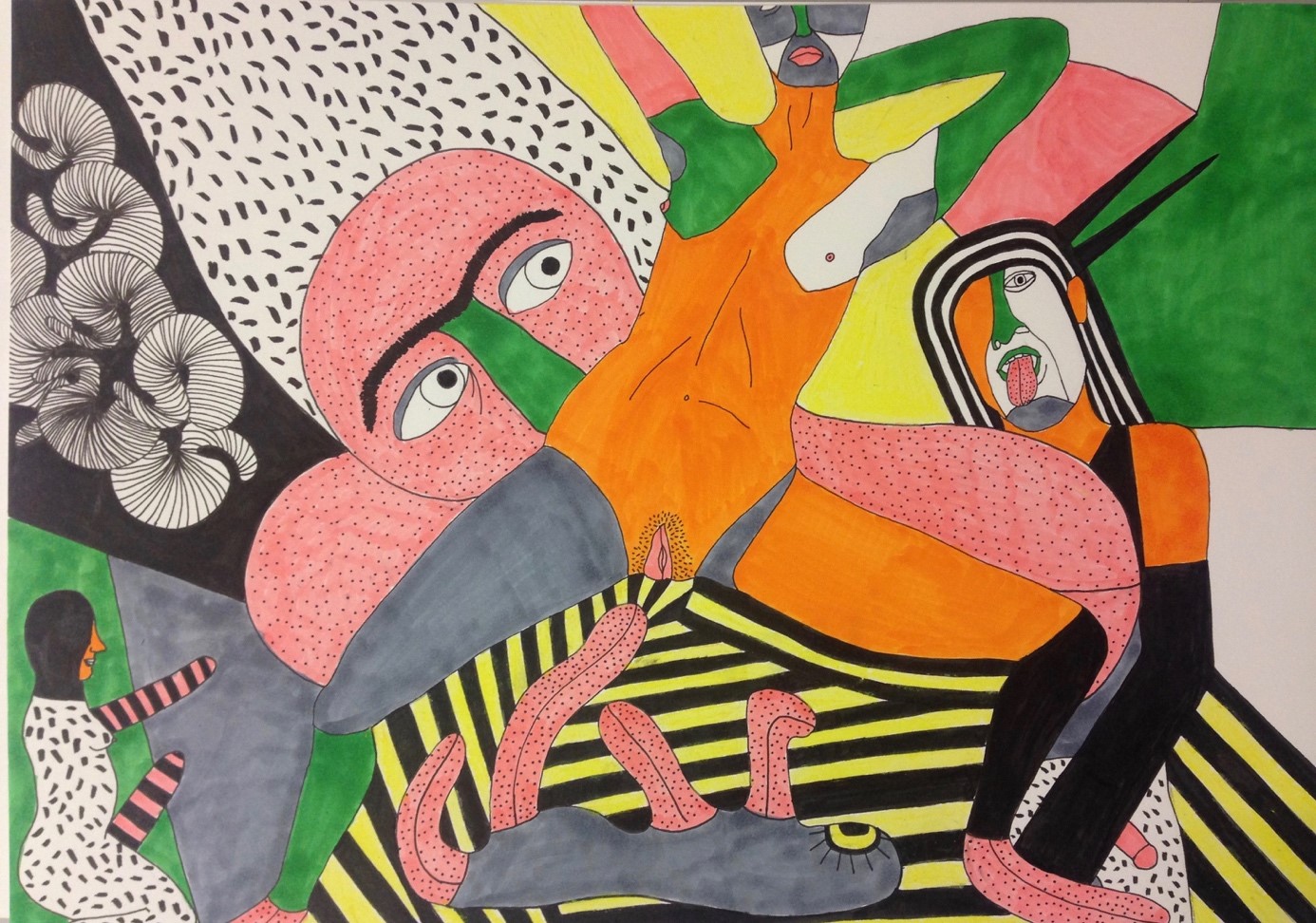Differing Bodyminds: Crip Theory in the Arts and Humanities. Doctoral Seminar
Antwerp University, KU Leuven and Gent University kindly invite you for the first event devoted to crip theory in Flanders. We organize a two-day doctoral seminar focusing on crip theory, both from a theoretical and methodological perspective combined with a one-day symposium to approach the same topic from a practical and artistic point of view.
Venue: STUK, House of House of Dance, Image and Sound, Naamsestraat 67, 3000 Leuven
Invited speakers:
Performance artist Sonja Jokiniemi
Registration for the doctoral seminar is free but mandatory until March 20: leni.vangoidsenhoven@uantwerpen.be
Programme and registration for the symposium can be done here: https://www.stuk.be/en/program/symposium-differing-bodyminds-choreographing-new-pathways
During the doctoral seminar PhD students as well as postdoctoral researchers are encouraged to present their work in a 15 min slot. If you are interested to present, please send an abstract (300 words) and contact details to leni.vangoidsenhoven@uantwerpen.be
The two-day doctoral seminar with Robert McRuer, Jane Gallop and Carrie Sandahl focuses on the most recent theoretical and methodological developments in crip theory. Participants will be asked to prepare a short reader on crip theory, and then McRuer and Gallop will present their new research (see abstracts below). The PhD students and postdoctoral researchers will bring their own research to the table, exploring how it might evolve in light of the new thinking they are exposed to over the two days of the course. The participants will give short presentations about their own research and have the opportunity to get feedback from McRuer, Gallop and Sandahl.
Each day will conclude with in-depth discussions of current issues in crip theory. More specifically we will explore the question: What concepts and what methodologies might we develop to carry out research inspired by the possibilities opened up in Crip Theory?
READER doctoral seminar:
the texts will be sent to the participant after registration and 6 weeks before the doctoral seminar.
- Introduction and chapter 3 “Inhabitable Spaces” in: McRuer, Crip Times: Disability, Globalization, and Resistance, NewYork University Press, 2018.
- Introduction: Theoretical Underpinnings, chapter 1: “High Heels and wheelchairs”, conclusion: “Longitudinal identities” in Gallop Sexuality, Disability and Aging: queer temporalities of the Phallus, Duke University Press, 2019.
- “Using Our Words: Exploring Representational Conundrums in Disability Drama and Performances” in JLCDS, 2018, Vol 12(2), pp. 129-145.
- “The phenomenological Turn in Disability Arts” (To be Published)
Detailed program (available in March)
Abstracts of lectures and workshops below.

What is Crip theory?
Crip theory is a relatively young field of study, associated with the pioneering work of Robert McRuer and Carrie Sandahl. In the early 2000s, they developed a new approach towards disability, building on the work of Judith Butler and Michel Foucault. Like queer theory, crip theory starts from a pejorative term, ‘crip’ to expose our underlying norms with regards to bodies and physical and mental abilities, which they call ‘compulsory abled-bodiedness’. Moreover, they draw specific attention to the intersection of gender and disability, which locates crip theory on the edge of queer theory and disability studies.
Crip theory is very much involved in contemporary cultures of disability and queerness, and considers disability or different bodyminds to be viable identities. In this, it combines both a theoretical and methodological stance with an outspoken activist aim. This also explains why the agenda of crip theory profoundly influenced artistic practices concerned with people with disabilities and sexual minorities who share histories of injustice.
The most recent work in crip theory, shifted the emphasis from identity politics towards imagining and producing alternative futurities, an active envisioning of a more accessible and just society: “An accessible society (…) is not simply one with ramps and Braille signs on ‘public’ buildings, but one in which our ways of relating to, and depending on, each other have been reconfigured” (McRuer 2006, 94), a society in which being disabled is imagined differently. In this work, moreover, crip not merely intersects with queer and gender, but also with age, race and class.
In 2018 and 2019 two studies emerged that are pivotal for this shift in crip theory: McRuer’s Crip Times: Disability, Globalization, and Resistance (NewYork University Press), and Jane Gallop’s Gallop Sexuality, Disability and Aging: queer temporalities of the Phallus (Duke University Press). We will take these studies as a starting point for an in-depth conversation on the present and future of crip theory.
Abstracts and Bio
Robert McRuer

Robert McRuer, Full Professor of English at George Washington University, DC, is one of the founders of Crip Theory. He teaches queer and crip theory, disability studies, and American cultural studies in a transnational context and publishes widely on these themes.
Lecture abstract
“Queer Affect in Crip Landscapes: Disability, Desire, Devastation”
My recent work reads the current moment of global emergency as what I have termed “crip times”; I have argued that in our moment disability is a central, but undertheorized, component of a global austerity politics. Crip Times: Disability, Globalization, and Resistance (NYU, 2018) centers on the particularly-punishing austerity regime that has been in place in the UK for almost a decade, but the book spins out to a range of other locations where a logic of austerity is deeply sedimented, including the United States, and considers as well the ways in which disabled artists and activists resist that logic. “Queer Affect in Crip Landscapes” continues this work, focusing on disabled subjects caught up in new and devastating forms of authoritarian neoliberalism across our hemisphere. The presentation looks in particular toward Brazil, where the newly-installed President Jair Bolsonaro is primed not only to deepen austerity but to wreak havoc on the country’s natural resources, opening the rain forest to increasing development as cities in the north burn and cities in the south sink further into the sea. Situated at the intersection of queer affect theory, mad studies, and crip ecologies, the paper examines the forms of queer/crip intimacies and desires that might emerge in the midst of such devastation and destruction. To pose those questions, I examine two recent queer films that are not immediately legible as “disability” films, but which I read through a crip analytic: Karim Aïnouz’s Futuro Beach (2014), set largely in the northern city of Fortaleza; and Filipe Matzembacher and Marcio Reolon’s Hard Paint (2018), set entirely in the southern city of Porto Alegre. Waste and sinkage are the keywords framing my analysis, as I consider precarious forms of queer/crip affects, intensities, and intimacies emerging from the wasteland of the north to the sinkage (environmental and economic) of the south. Although I do not argue that the texts I consider provide easy answers for responding to devastation and destruction in crip times, I do suggest that they represent disabled ways of knowing (cripistemologies) that gesture towards the most famous idea to emerge from the city of Porto Alegre: another world is possible.
Jane Gallop

Jane Gallop is a Distinguished Professor of English and Comparative Literature at the University of Wisconsin. She has written nine books and over hundred articles on, amongst others, psychoanalysis, Feminism, sexual harassment, queer theory and disability.
Lecture abstract
The use of Crip Theory to Think about Sex, Age and Disability
Jane Gallop will entertain a Q & A on her new book, Sexuality, Disability, and Aging: Queer Temporalities of the Phallus. This Q& A will allow a discussion of the diverse threads of the book as well as extending the discussion in various directions of interest to those attending.
Sexuality, Disability, and Aging thinks at the intersection of a number of discourses and methods. It applies queer temporality to aging; it uses crip theory and psychoanalysis to think about aging and disability; it uses radical aging studies to rethink our ideas of sexuality and identity. Its method combines sophisticated psychoanalytic, crip and queer theory with personal writing, and engages the most radical affirmations at the intersection of disability and aging.
Carrie Sandahl

Carrie Sandahl is Associate Professor at the University of Illinois at Chicago in the Department of Disability and Human Development. She directs Chicago’s Bodies of Work, an organization that supports the development of disability arts and culture, through festivals, advocacy, and an artist residency program. Her research and creative activity focus on disability identity in live performance and film. Sandahl’s publications include a co-edited an anthology, Bodies in Commotion: Disability and Performance, which garnered the Association for Theatre in Higher Education’s award for Outstanding Book in Theatre Practice and Pedagogy (2006). Sandahl frequently travels nationally and internationally to speak about her research and arts advocacy initiatives. She collaborated on a documentary, Code of the Freaks, a critique of disability representations in cinema, which premieres in 2020.
Lecture Abstract
Representational Conundrums: A workshop in disability performance criticism
In this workshop, Sandahl will share her method of analyzing disability performance by working through what she calls “representational conundrums.” These conundrums are puzzles or paradoxes unique to disability representation that offer generative sites for exploring new aesthetics emerging in the genre. First, Sandahl will review some trends in criticism—in both scholarship and journalism—that point to a central conundrum: how do we describe disabled bodies when we are taught not to look at them? Description is the first step to analysis, but most criticism tends to work around the subject of analysis by turning disability into a metaphor that reflects on normalcy and able-bodiedness. What happens when we center disabled bodies, intersectional identities, and experiences themselves? Sandahl will share some of images and video of innovative disability performances and take participants through the method she has developed to describe and analyze them.

1 thought on “>>> !!! Because of covid-19 this event is postponed to APRIL 2021 !!! <<<”
Comments are closed.